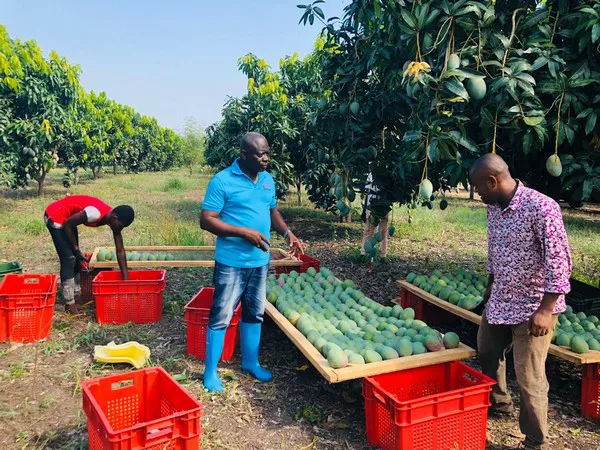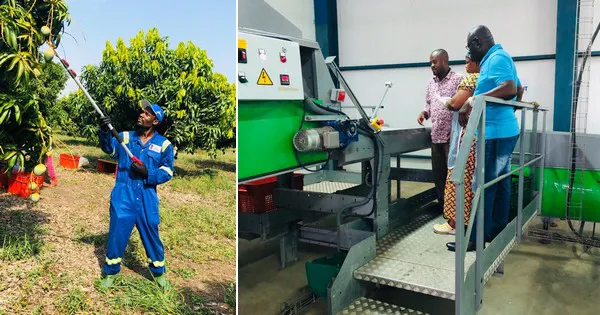One of the two mango seasons is about to take off in Ghana. After making some investments, one American has had a difficult year last season. After making some adjustments in strategy though, they are now ready to put the mango from Ghana on the map for good.
Last season, MakolaHub entered the mango cultivation in Ghana. While working with local farmers, CEO Alex Kravecas had hoped to take the world by storm by now, but getting a foothold was more challenging than it seemed at first glance. “We worked only with bigger farms last season, with a minimum acreage of 30 acres. Bigger farms in Ghana focus on mango production for the local and processor markets. They focus on quantity, not quality. They are also more difficult to work with in terms of oversight than smaller farms are- which typically want our support and are interested in producing for the export market. In short, smaller farms are easier to work with, can more easily manage their quality, and have more of a desire to produce for the export market.”

This knowledge meant MakolaHub had to try and tackle things differently. Kravecas decided to shift his focus on smaller farms entirely. “Over time our goal is to work with hundreds of small farmers across Ghana. Each of the farms are GlobalGAP certified, but they still sometimes require technical assistance, chemicals and financing, which we began providing at the end of last season. Smaller farms, with less than 30 acres, are more manageable and more attention is given to each acre than on the bigger farms, and therefore they produce better quality. The most difficult thing was to convince small farms to produce to the requirements of the export market, while keeping their prices affordable. Ghana has not typically been a fresh mango exporter so most of the farmers are accustomed to producing only for local consumption or the processors.”
“The next step was to improve our logistics strategy. We are now only working with farms that are within ten miles of our pack house. There are hundreds of small farms within that radius. Last season we worked with farms hundreds of miles from the pack house. Our new strategy gives us the ability to harvest and process the mangoes, getting them into cold storage, much more quickly than before,” Kravecas explains. “With the changes we've made we're now able to focus entirely on quality. We've solved the capacity issue by working with a lot of smaller farms rather than a few big farms. Working with a lot of small farms gives us the ability to select the best quality and not get stuck with subpar quality if a farm has troubles during any given season. It also gives us an extended shipping window because each farm matures at a different time.”

Moving forward, Kravecas hopes they can convince the remaining small farmers of the advantages of working with MakolaHub. “There are still farmers who are not convinced of what we're doing, so they don't put in the necessary effort to produce export-quality fruits. Rather than invest in their farms (to produce better quality) they would rather continue selling to the local/processor market. With each successful export season that passes, farmers will learn that investing in their farms is the better option because it gives them better yield, a healthier farm, and they can sell to an entirely new market (which reduces their risk, especially during the major season). As trust between us and the farmers develops, the number of farms that will want to work with us will grow.”
And so this season everything has to fall in place. Kravecas has learned from the challenges he had to face in the previous season. Now it’s time to get those mangoes ready for export, he says. “We're expecting to ship just around 250 tons. It’s our minor season and we are still developing the brand to compete with Peru and Brazil, which are the preferred origins for most of Europe. Ghana has two growing seasons and the one in May-June occurs when almost no other countries are shipping mangoes. Moreover, Ghana has a shorter transit time than South American countries, so we can definitely take advantage.”
For more information:
Alex Kravecas
MakolaHub Fresh
Tel: +1 201 394 0368 (US)
Tel: +233 548 762 162 (GH)
Email: AKravecas@Makolahub.com
www.makolahubfresh.com
